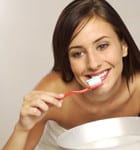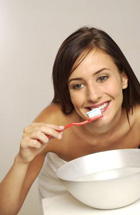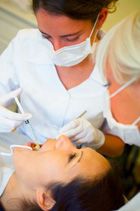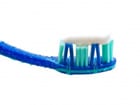 Brushing your teeth is something you learn when you are very young, but it never stops being important. Brushing is the most effective way to remove plaque and bacteria from the mouth, helping to keep your mouth clean and fresh. It also reduces the risk of dental health problems, such as gum disease, decay, bad breath and staining.
Brushing your teeth is something you learn when you are very young, but it never stops being important. Brushing is the most effective way to remove plaque and bacteria from the mouth, helping to keep your mouth clean and fresh. It also reduces the risk of dental health problems, such as gum disease, decay, bad breath and staining.
How often should I brush my teeth?
Dental polls show that many people skip brushing their teeth –this is not advisable and we recommend that all our patients to brush their teeth twice a day. Most people find it convenient to brush in the morning and before they go to bed, while some also like to brush after lunch to prevent bad breath.
How long should I brush for?
It is important that you brush your teeth thoroughly. Simply dusting over your teeth will not do the job, so try to aim for at least two minutes of brushing, twice a day. If you struggle to stick to a 2 minute brushing period, try using a toothbrush that has a timer.
Brushing technique
When you brush your teeth it is important to cover all areas of your mouth. Tip the head of the brush to a 45 degree angle, polish the teeth and remember to brush along the gum line, as this is a common place for bacteria to gather. Brush the teeth with circular motions and take care not to brush too hard, as this can damage the surface enamel of the teeth and the gums. If you find that your gums are bleeding during brushing, this may mean that you are brushing too hard.
Manual toothbrushes versus electric toothbrushes
Manual toothbrushes have been around for decades and they can do a highly effective job – but electric toothbrushes remove more plaque, can be easier to use and many come with additional features, such as different brushing modes and a timer. If you have any questions about choosing a toothbrush, ask our friendly dentists in Central Leeds.







 Leading a busy life can sometimes lead you to forget just how important it is to take good care of your teeth. But the fact is that many of the activities that you take for granted depend on you having a healthy mouth. If you contract gum disease or start experiencing dental decay then eating, drinking and even talking can be rendered much more difficult. So it is best to take care of your mouth in the way that dentists advise.
Leading a busy life can sometimes lead you to forget just how important it is to take good care of your teeth. But the fact is that many of the activities that you take for granted depend on you having a healthy mouth. If you contract gum disease or start experiencing dental decay then eating, drinking and even talking can be rendered much more difficult. So it is best to take care of your mouth in the way that dentists advise. A relatively new weapon in the war against dental disease is the dental hygienist. More and more dental practises across the country are using hygienists to supplement the treatment offered by the dentist, to provide the most comprehensive dental care possible.
A relatively new weapon in the war against dental disease is the dental hygienist. More and more dental practises across the country are using hygienists to supplement the treatment offered by the dentist, to provide the most comprehensive dental care possible. The two most important weapons in the fight against dental disease are brushing and flossing. By taking the extra few minutes each day to properly brush and floss your teeth you could save yourself a lifetime of complicated, painful and costly dental procedures. It sounds like a fairly straightforward deal but many patients do take dental hygiene for granted.
The two most important weapons in the fight against dental disease are brushing and flossing. By taking the extra few minutes each day to properly brush and floss your teeth you could save yourself a lifetime of complicated, painful and costly dental procedures. It sounds like a fairly straightforward deal but many patients do take dental hygiene for granted. It is very likely that any visit to the dentist today, will also involve a visit to the dental hygienist. This is a fairly new system of treatment that is being employed, but one that can greatly improve its quality. Dental hygienists use treatments called scaling and polishing to professionally clean teeth. These processes remove excess plaque and tartar that cannot be removed by conventional brushing.
It is very likely that any visit to the dentist today, will also involve a visit to the dental hygienist. This is a fairly new system of treatment that is being employed, but one that can greatly improve its quality. Dental hygienists use treatments called scaling and polishing to professionally clean teeth. These processes remove excess plaque and tartar that cannot be removed by conventional brushing.

